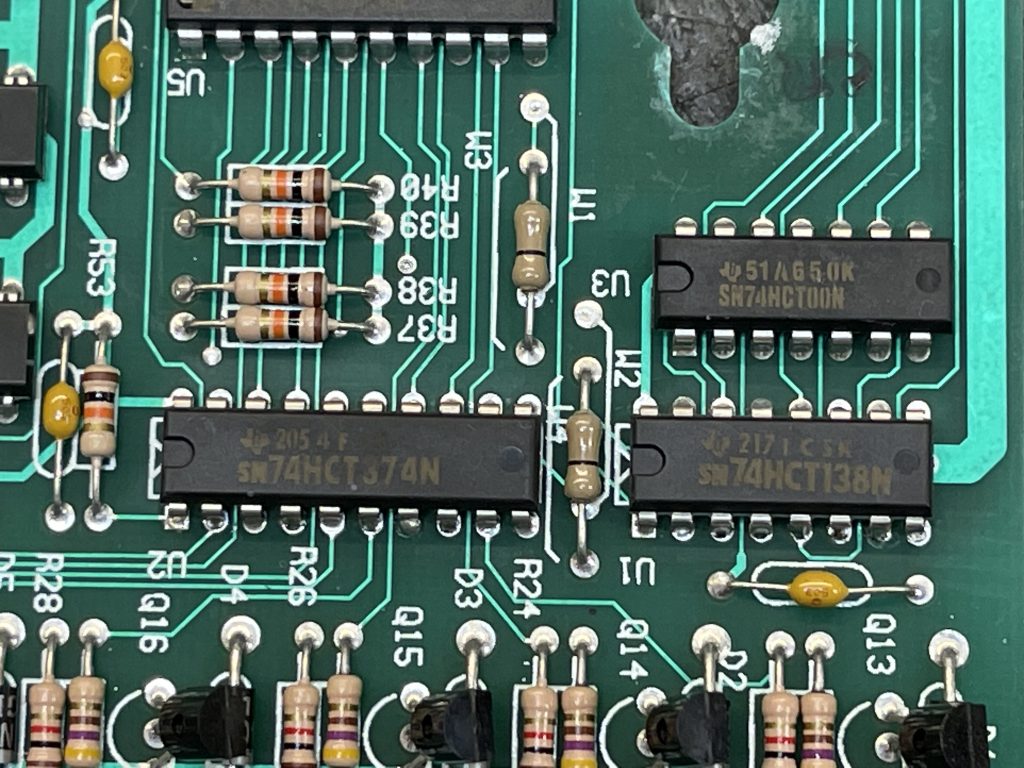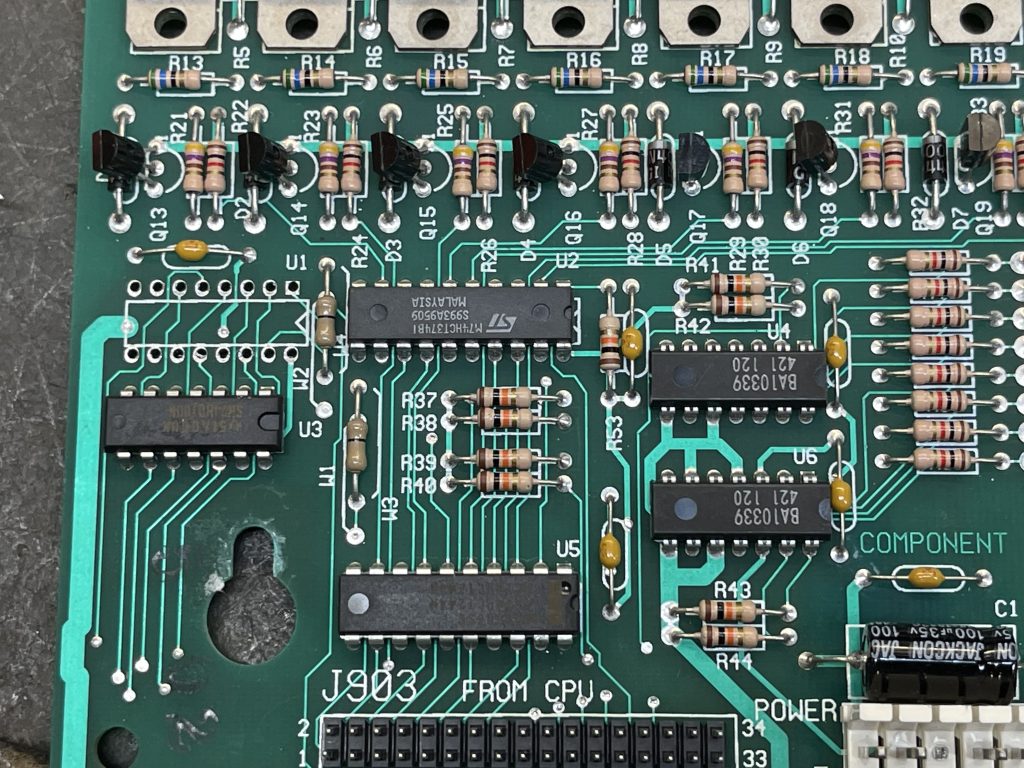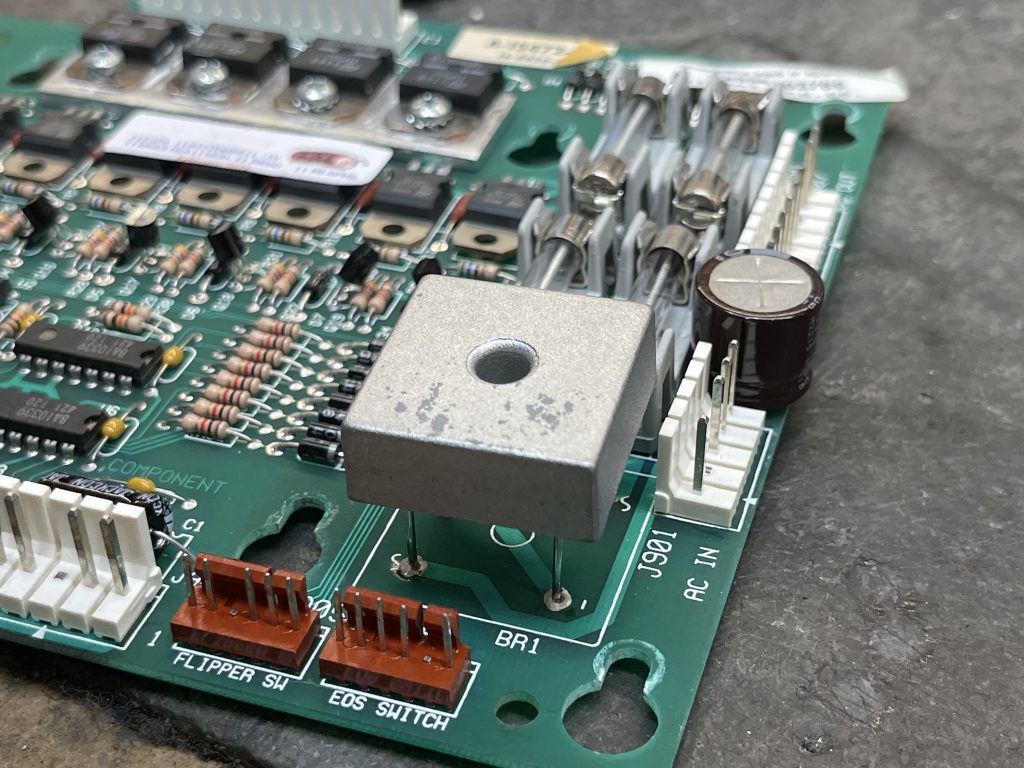Usually when I’m repairing a board just 1, maybe 2 components are bad. This Fliptronics II board was left on my bench with a note saying “it locks up the logic board.”
I wrote a while ago about a simple trick for finding faulty 74XX series logic chips. Set your DMM to diode test and place your RED lead on the ground plane and use the BLACK lead to probe each leg of a suspected chip. You can compare them to see if one or more is way out of line with others.
The ground pin, and other pins intentionally tied to ground, will of course be 0.00. Pins tied to power will read approximately ~.200to ~.275 or so.
Other pins will read in the range of ~.450 ~.650 give or take. On this board I had 3 pins reading .027 on 2 different chips. I suspected U1 so I desoldered the one leg and it was still reading off while the 2 pins on the other chip (U5) were reading correctly.
I replaced it and gave the board a test. No luck. Back on the beach U2 had a leg giving me off readings so I changed it. Now the flippers are locking on as soon as I turn the game on. One thing I noticed is the board has 74HCT series chips and I have 74LS’s on hand. I pulled the HCT’s out of a parts board and now the game boots up and the flippers aren’t locking on but I’m just getting garbage, then vertical lines on the display now.

U5 has 2 other legs giving me off readings so I swapped it with one from the parts board and now everything is working correctly except……. the game resets after hitting the flippers a few times. This is usually caused by a bad bridge rectifier, BR2 under the heat sink, or the 2 red wires on connector J101 when they are burned up.

Since the bridges were done and the connector was good and the game wasn’t resetting before it’s time to take the flipper board back to the bench again. The next logical thing to check is the bridge on the Fliptronics board. One diode was open. I put a new bridge in and everything is working as expected.

One board with 3 bad chips and a bad bridge. Not too often something like that happens. I can only imagine the bridge failed causing some kind of a voltage spike that may have taken the 3 chips with it.
Remember a bridge with a shorted diode will typically blow a fuse, which is usually what happens. Even though no fuses are blowing, still check those bridges. A shorted or open diode can cause all kinds of strange things.

Be the first to comment